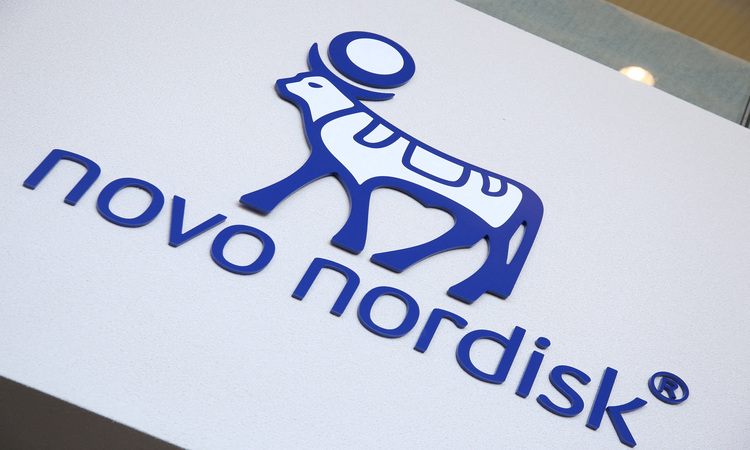NEW YORK – On Thursday, U.S. consumer groups and two large labor unions urged the U.S. Federal Trade Commission to block Novo Holdings, the controlling shareholder of Novo Nordisk (NYSE: NVO), from acquiring contract drug manufacturer Catalent (NYSE: CTLT), saying the deal threatens competition in weight loss drugs and cutting-edge gene therapies.
U.S. Public Interest Research Group, Service Employees International Union (SEIU), and others expressed concerns in a letter to the FTC about the $16.5 billion deal, which Novo Holdings has said would boost the supply of Wegovy, Novo’s blockbuster GLP-1 injectable weight-loss drug.
Last week, U.S. Senator Elizabeth Warren, a Democrat, called on the FTC to look closely at the deal over similar concerns.
The deal could constrain options for competitors such as Amgen (NASDAQ: AMGN), Pfizer (NYSE: PFE), Roche, and AstraZeneca (NASDAQ: AZN), who are reportedly developing their own GLP-1 drugs, the groups said.
“Because of the proposed acquisition, there is a real question of whether these future rivals to Novo will be able to secure the expertise to bring the product to market and have the available and qualified capacity to manufacture these products when they commercially launch,” the groups said.
Viking Therapeutics (NASDAQ: VKTX), Structure Therapeutics (NASDAQ: GPCR), and Sun Pharma also have GLP-1 drugs in development and could be affected, the groups said.
Novo Holdings, in a statement to Reuters on Friday in response to the consumer groups’ letter, said: “We remain confident in the pro-competitive rationale for this transaction and are committed to realizing the benefits it will bring to customers, and patients, and the local communities which Catalent now serves.”
A Catalent spokesperson reiterated the company’s position on the deal in a statement on Friday to Reuters in response to the letter: “Novo Holdings’ pending acquisition of Catalent will further strengthen Catalent’s ability to deliver better outcomes for our customers and the patients they serve.”
A Viking spokesperson declined to comment. A Roche spokesperson declined to comment on the letter but said that the drugmaker has secured near-term supplies for its clinical trials of the GLP-1 drugs it is developing. Roche plans to manage the scaling up of commercial production “by using a mix of in-house and external manufacturing”, the spokesperson said.
The other companies did not immediately respond to requests for comment on Thursday.
According to the terms of the deal, Novo Holdings would sell three of Catalent’s factories, where injection pens are filled in sterile conditions, in Italy, Belgium, and the United States, to Novo Nordisk for $11 billion.
Novo Nordisk (NYSE: NVO) has said it is committed to honoring existing contracts at the plants, and that it is not aware of any competitive GLP-1 products being manufactured for commercial sale at the three sites.
“We have and will continue to work closely with the FTC and EU regulators as intended under the law. We still expect the transaction to close toward the end of the calendar year,” Novo Nordisk said in its response to the consumer groups’ letter.
The groups, which included Consumer Action, diabetes group Beta Cell Action, Doctors for America, and the American Federation of State, County, and Municipal Employees (AFSCME) union, also expressed concern that Novo Holding’s ownership could affect Catalent’s capacity to manufacture gene therapies.
AFSCME represents around 1.6 million public sector workers, and SEIU has around 2 million members who work in healthcare, the public sector, and property services.
Ten consumer groups had signed on to the letter on Thursday afternoon.
“The competitive concerns here go far beyond existing drugs. We believe the commission should look at the impact on future therapies including gene therapy,” said David Balto, the antitrust lawyer who represents the groups and drafted the letter.
The letter mentioned Catalent’s contracts with Sarepta Therapeutics (NASDAQ: SRPT), to produce its gene therapy Elevidys, and with Novartis (NYSE: NVS), to produce its gene therapy Zolgensma. The Catalent (NYSE: CTLT) facilities producing these therapies are separate from the three factories that Novo Holdings plans to sell on to Novo Nordisk.
Sarepta does not anticipate any impact from the Catalent acquisition, spokesperson Tracy Sorrentino said on Thursday. Sarepta’s contract with Catalent runs through 2028.
On Thursday, a Novartis spokesperson said that Zolgensma is no longer manufactured at any Catalent facility.
(Source: ReutersReuters)
Catalent Latest News on Novo Nordisk A/S (NVO) Stock Novo Holdings NYSE: CTLT













